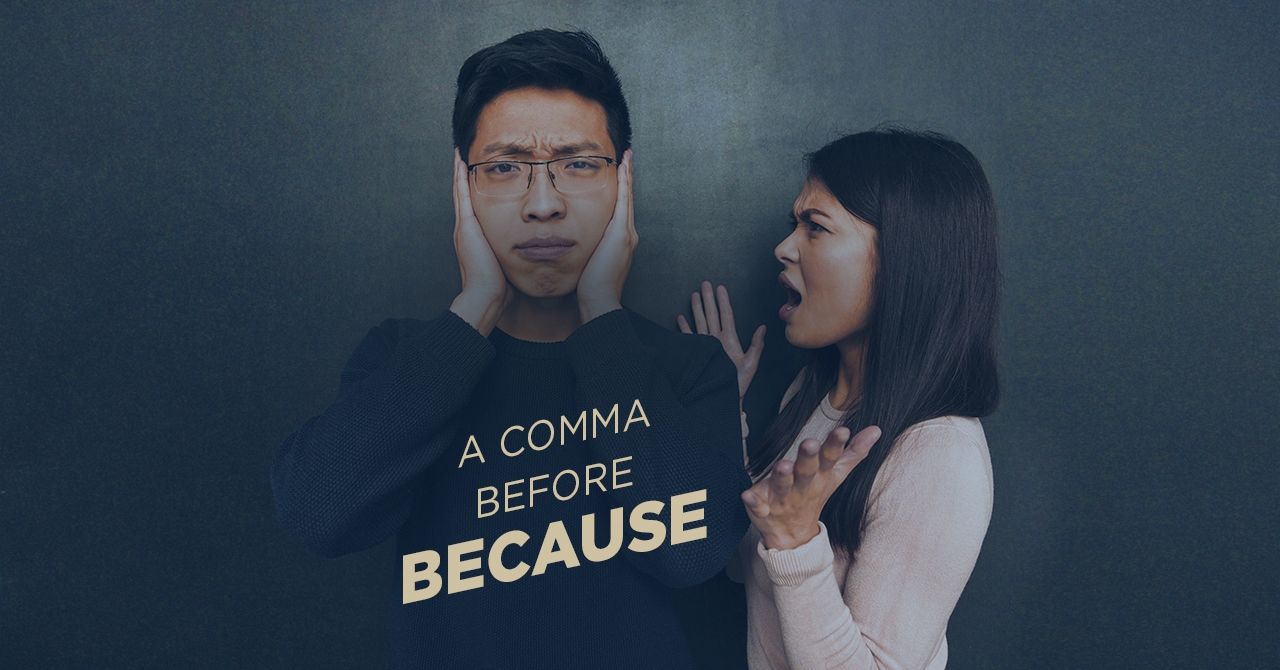
How to Decide if a Comma Before “Because” is Necessary
Most of the time “Because” is considered a purpose clause that’s responsible for providing a purpose of the action stated in the independent clause. “Because” explains why something happened, which makes it subordinate to the beginning of the sentence, an independent clause.
General facts on using a comma with “because”
Is “because” a junction? Yes, indeed, it’s a subordinate one. Knowing this, you might feel there is a need to accompany the word with a comma but think twice before you do so. Inserting a comma before or after “because” is a tricky business. Today, we’re dealing with the “before” part of the story. It’s safe to say that it’s usually unnecessary to put a comma before “because” when linking two clauses within one sentence. However, it may be useful in particular cases. Let’s untangle both situations!
When to exclude using a comma before “because”
Most of the time, “Because” is considered a purpose clause that’s responsible for providing a purpose of the action stated in the independent clause. “Because” explains why something happened, which makes it subordinate to the beginning of the sentence, an independent clause. Therefore, the two parts fit together perfectly without a comma.
Examples:
Kate has entered the competition because she is a skillful athlete.
We can’t go for a walk now because it’s raining.
Situations where putting a comma before “because” should be considered
It might happen that a sentence would be dubious or unclear without using a comma before “because.” In that case, insert one to make sure you don’t puzzle your reader. Moreover, completing the conjunction word with a comma is not only justified when striving for more transparency but also when the sentence carries negativity.
Examples:
Tim couldn’t paint the wall, because his arm hurt.
They were not admitted into the museum, because they didn’t have a ticket.
Given the comma, it comes off clear that the actions couldn’t be done successfully because of the reason provided in the subordinate clause. These sentences might be continued by another one which backs up the initial sentence.
Examples:
Tim couldn’t paint the wall, because his arm hurt. He probably strained his muscle at the gym.
They were not admitted into the museum, because they didn’t have a ticket. They surely left them at home.
The takeaway
Generally, there’s no need to use a comma before because when linking two parts of a sentence. However, it might be useful when you wish to clarify why a certain action happened or when your sentence starts with a negative statement.
Examples of using “because”:
I am an enthusiastic, detail-oriented, proactive, and responsible translator, proofreader, and copywriter with a perfectionist motivated get-it-done and on-time attitude.

